
Vernon Corea was a pioneer radio broadcaster with 45 years of public service broadcasting both in Sri Lanka and the UK. He joined Radio Ceylon, South Asia's oldest radio station, in 1956 and later the Sri Lanka Broadcasting Corporation. During his time he presented some of the most popular radio shows in South Asia, including The Maliban Show, Dial-a-Disc, Holiday Choice, Two For the Money, Take It Or Leave It, Saturday Stars, To Each His Own, Kiddies Corner, and Old Folks at Home. He was well known not only in Sri Lanka, but right across the Indian Sub-Continent from the late 1950s to the 1970s – this was in the heyday of Radio Ceylon, the oldest radio station in South Asia.
Radio Ceylon is a radio station based in Sri Lanka and the first radio station in Asia. Broadcasting was started on an experimental basis by the colonial Telegraph Department in 1923, just three years after the inauguration of broadcasting in Europe.

The Sri Lanka Broadcasting Corporation (SLBC) came into existence on 5 January 1967 when Radio Ceylon became a public corporation. Dudley Senanayake who was the Prime Minister of Ceylon in 1967 ceremonially opened the newly established Ceylon Broadcasting Corporation along with Minister Ranasinghe Premadasa and the Director-General of the CBC, Neville Jayaweera. The first board of Directors of CBC consisted of Mr Neville Jayaweera (CCS), Mr A. L. M. Hashim, Mr Dharmasiri Kuruppu, Mr K.A.G. Perera and Mr Devar Surya Sena. After the first board meeting, it was decided unanimously to appoint the chairman, Mr Jayaweera, as the new Director-General.
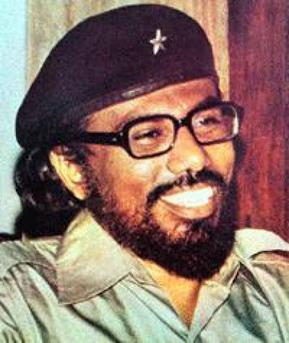
Patabendi Don Jinadasa Nandasiri Wijeweera (Sinhala: පටබැඳි දොන් ජිනදාස නන්දසිරි විජෙවීර; 14 July 1943 – 13 November 1989, better known by his nom de guerreRohana Wijeweera, was a Sri Lankan Marxist-Leninist political activist, revolutionary and the founder of the Janatha Vimukthi Peramuna. Wijeweera led the party in two unsuccessful insurrections in Sri Lanka, in 1971 and 1987 to 1989.

Radio broadcasting in Sri Lanka dates to 1923. Radio broadcasting, like other forms of media in Sri Lanka, is generally divided along linguistic lines with state and private media operators providing services in Sinhala, Tamil, and English language.

The 1987–1989 JVP insurrection, also known as the 1988–1989 revolt or the JVP troubles, was an armed revolt in Sri Lanka, led by the Marxist–Leninist Janatha Vimukthi Peramuna, against the Government of Sri Lanka. The 1987–1989 insurrection, like the 1971 JVP insurrection, was unsuccessful. The main phase of the insurrection was a low-intensity conflict that lasted from April 1987 to December 1989. The insurgents led by the JVP resorted to subversion, assassinations, raids, and attacks on military and civilian targets while the Sri Lankan government reacted through counter-insurgency operations to suppress the revolt.
Jimmy Bharucha, was a Sri-Lankan Parsi broadcaster called a 'colossus in Sri Lanka's broadcasting world'. Bharucha died in Colombo in June 2005.
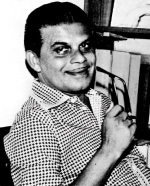
Karunaratne Abeysekera was one of Sri Lanka's most famous Sinhala broadcasters. He was also a poet and songwriter and was widely admired for his excellent command of Sinhala.

Independent Television Network Ltd also known as ITN Ltd or simply as ITN is a Sri Lankan state governed television and radio broadcaster located in Wickramasinghepura, Battaramulla, Sri Lanka. It is a Shrama Abhimani Award winner , broadcasts content to a wide demographic within Sri Lanka as well as the expatriate community. The programmes are broadcast in three languages: Sinhala, Tamil, and English. The ITN broadcast coverage extends to 99% of the island of Sri Lanka.
S. P. Mylvaganam was a Sri Lankan radio broadcaster. He was the first Tamil language announcer for the Commercial Service of Radio Ceylon. He had fans across Sri Lanka and India.
Elmo Fernando was a popular announcer with Radio Ceylon and subsequently the Ceylon Broadcasting Corporation. Fernando was an excellent reader of the news. He joined Radio Ceylon, the oldest radio station in South Asia at a time when it was known as the 'King of the Airwaves' in the 1950s and 1960s. Millions tuned into the station from across the Indian sub-continent. When he was at Radio Ceylon he was mentored by the veteran broadcaster Vernon Corea.
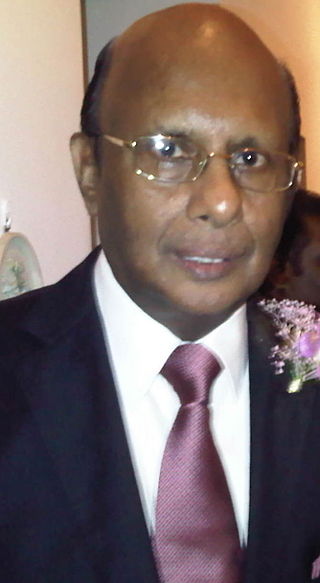
Vijaya Corea is a radio and television broadcaster and one of Sri Lanka's most well known media personalities. Corea is a household name in Sri Lanka, synonymous with broadcasting and show business for over four decades, and has often been referred to as Sri Lanka's No. 1 Compere.
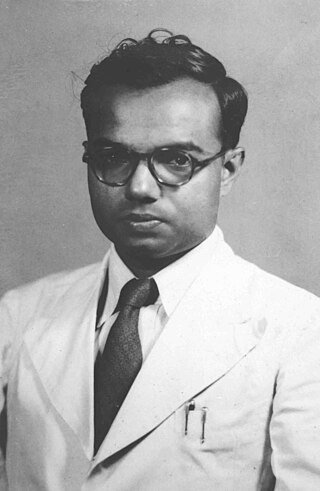
Mapatunage James "M. J." Perera was a Sri Lankan civil servant with nine members in his family in Udumulla, Padukka. He created broadcasting history by being the first Ceylonese Director General of Radio Ceylon, the oldest radio station in South Asia, taking over the helm from John Lampson of the BBC.

Samaraweera Mudalige Don Premakeerthi de Alwis, popularly known as Premakeerthi de Alwis, was a Sri Lankan radio and television broadcaster and lyricist. Considered as an iconic figure in Sri Lankan radio television history, he was assassinated during the 1987–89 JVP Insurrection at the age of 42.
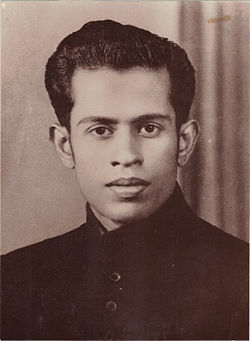
R. A. Chandrasena was a Sri Lankan musician who earned his reputation as a highly talented and gifted artist and also by his contribution to the Sri Lankan music discipline and the industry during 1940–1980.
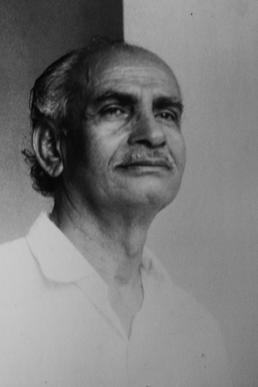
Dharma Sri Munasinghe was a Sinhala radio playwright and film screenwriter and director, best known for his work as the writer of the famous Sinhala radio plays Muvan palessa and Monara thenna. He was also an award-winning Sinhala drama actor, and featured in the play Maname.
Sellapperumage Saman Piyasiri Fernando, was the military wing leader of the Janatha Vimukthi Peramuna during the 1987-89 insurrection in Sri Lanka, the JVP's military wing also known as Deshapremi Janatha Viyaparaya (DJV). His position in the JVP as the military commander was organizationally higher than the position of Rohana Wijeweera, the founder of the JVP.
Freedom of the press in Sri Lanka is guaranteed by Article 14(1)(a) of the Constitution of Sri Lanka which gives every citizen "the freedom of speech and expression including publication". But under some government's there was widespread suppression of the media, particularly those critical of those governments. Sri Lanka is ranked 146 out of 180 countries in Reporters Without Borders's Press Freedom Index for 2022
Kala Suri Koddul Arachchige Wilson Perera [Sinhala]), popularly known as K.A.W. Perera, was a director in Sri Lankan cinema. Considered as the pioneer of Sri Lankan public cinema, Perera was also a screenwriter, dialogue writer, lyricist and producer who contributed to Sri Lankan drama career for more than five decades.









